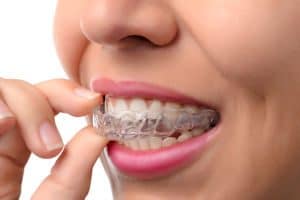
Advantages of Clear Braces
Did you need braces as a child, but your family couldn’t afford them or you didn’t receive them for another reason? If so, it’s not too late for you to straighten your teeth and have the smile you have always wanted. Perhaps you’re the parent of a patient who needs braces but doesn’t want the metal smile associated with them for two or more years. Whatever your situation, Dr. Borham and Dr. Oushy are happy to let you know about Invisalign clear braces at Mesilla Valley Family Dentistry in Las Cruces, New Mexico. The Benefit of Braces without the Metal Invisalign is a revolutionary approach to orthodontic care. Instead of an orthodontist applying wires and brackets to your teeth, you […]
Continue Reading...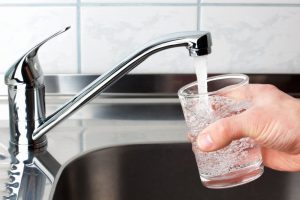
Fluoride and Decay Prevention
Fluoride is a naturally occurring element that has been shown to help strengthen teeth in children and also prevent decay in people of all ages. Topical fluoride, in particular is helpful for promoting oral health. The American Dental Association has publicly endorsed the use of fluoride for the prevention of dental caries, as has the American Academy of Pediatrics and the American Medical Association. Did you know… that you might be drinking fluoride every day without knowing it? Many communities add fluoride to the public water supply in an effort to promote better dental health. You can find out if there is fluoride in your tap water by contacting your local water utility. Keep in mind that if your primary […]
Continue Reading...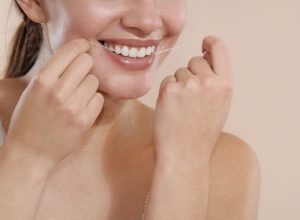
How to Floss Your Teeth
Flossing is an important part of an oral hygiene routine, but research suggests that fewer than half of Americans do so daily. Flossing is simple and only takes an extra couple of minutes per day. Developing a healthy habit of flossing can prevent tooth decay and gum disease, and it may allow you to keep more of your natural teeth as you age. So what is the most effective means of flossing? Pull the floss taught and slide it between two teeth. Pull against the side of one tooth, creating a “C-shape” and sliding upwards to remove plaque build-up. Pull against the opposite tooth edge using the same technique. Repeat this process for each tooth until all inner surfaces have […]
Continue Reading...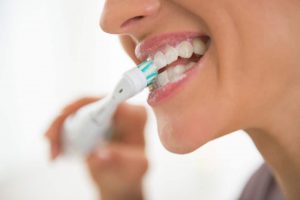
Electric Brush vs. Manual Brushes
Preventative dentistry is about more than just visiting your dentist twice yearly for an exam and thorough cleaning. In fact, the majority of your preventative care is done at-home as a part of your normal hygienic routine. Many residents use manual toothbrushes to remove debris and plaque from their teeth. However, electric brushes have become widely popular in recent years, leaving some to wonder whether one type is better than the other. Did you know… the American Dental Association does not lean toward one type of brush over the other? It does, however, acknowledge that people with upper body mobility restrictions may better benefit from an electric toothbrush instead of a manual brush. Regardless of which type you decide is […]
Continue Reading...
How to Brush Your Teeth
Brushing your teeth is probably a standard part of your daily routine, but chances are you aren’t following the American Dental Association’s guidelines for cleaning your teeth properly. The ADA currently recommends that you brush your teeth at minimum of two times each day – preferably morning and night or anytime you eat foods that contain sugar. When you brush, your toothbrush should be tilted at a 45 degree angle to your gum line. As you brush, be sure to remove debris from every surface of the teeth – including the backs of the teeth, near the gum line, and on chewing surfaces. It is also important to brush your tongue, as bacteria can accumulate there and cause malodorous breath. […]
Continue Reading...
Bad Breath
Having bad breath can be an embarrassing problem – especially if you are regularly face to face with other people. Known professionally as halitosis, bad breath plagues many people every day. Most cases of bad breath can be remedied by efficiently brushing the teeth. However, some types of bad breath are chronic or recurring, which may warrant a visit to the dentist. Did you know… that bad breath can be caused by something as simple as eating too much garlic, or that it could be a serious symptom of a disease? Some of the most common causes of bad breath include dry mouth, certain medications, use of tobacco, poor dental hygiene, and oral infections. In rare cases, bad breath may […]
Continue Reading...
Dental Health and Your Diet
Your body works hard to convert the foods you eat into energy. You may not think twice about what you are eating – especially when it comes to grabbing an afternoon snack or sipping on a vanilla latte on your commute. But the food you put in your mouth affects more than just your waistline. The truth is, your diet has a direct effect on your overall dental health. Developing good eating habits can lead to excellent oral health free of decay and gum disease. The American Dental Association recommends avoiding certain foods that can expedite decay, such as foods high in sugar. Did you know… that eating a slice of pie in the afternoon could be more dangerous to […]
Continue Reading...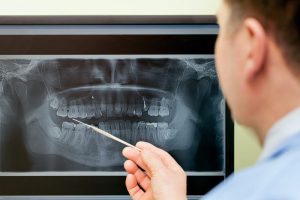
Digital X-Rays
Digital x-rays are a more streamlined way of taking dental radiographs. Like traditional x-rays, digital versions provide an in-depth view of the structures of the mouth, helping dentists detect complications and develop effective modes of treatment. Digital x-rays are capable of revealing hidden caries, bone erosion, and even tooth decay hiding beneath restorations. Requiring less radiation and no film to process, digital x-rays have become the standard for oral imaging. These systems produce instant digital images that can easily be enhanced and enlarged for a more accurate diagnosis. The images are captured, stored, and even transmitted via in-office computers. In fact, dentists can easily print or email copies of x-rays in just seconds. Dental x-rays make for a better and […]
Continue Reading...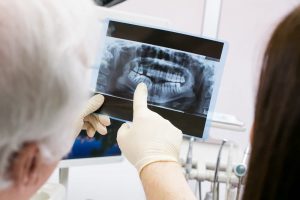
Dental X-Rays
For years, dental x-rays have been used to diagnose oral health complications and detect decaying or damaged teeth. X-rays provide a unique view of the mouth that isn’t possible with a visual exam alone. When x-rays are taken, the teeth and bones absorb the majority of the ray, making them highly visible on film or on a screen. Nearly all new dental patients are x-rayed, although you may instead request that previous x-rays be transferred from another dental provider to your new dentist. By comparing your x-rays with your full mouth examination and dental history, your dentist can prescribe effective treatment and recommend a plan for preventative care. Did you know… that dental x-rays deliver very low levels of radiation […]
Continue Reading...
Dentistry Post-Op Questions
If you are undergoing a dental procedure or operation, you will be given a set of post-operative instructions to abide by in the hours, days, and weeks after your treatment. Following these instructions is essential to preventing infections in surgical sites, protecting restorations, and minimizing the possibility of experiencing complications. Post-operative instructions vary from procedure to procedure, but you are still sure to have some questions regarding care. Your [city] dentist will be available to answer those questions and respond to any concerns you may have. Try to anticipate some of the questions you may have about your post-operative care and ask them prior to your treatment. Some of the most common post-op questions include: How should I manage pain […]
Continue Reading...